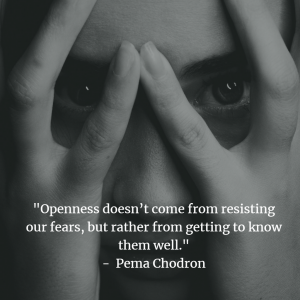Openness

Openness is a fundamental value and personal trait that influences our thoughts, behaviours, and overall approach to life. It encompasses the breadth, depth, and permeability of our consciousness, encouraging us to explore and embrace new experiences. Openness can be seen as a continuum, reflecting a person’s level of open-mindedness, imagination, creativity, and insightfulness.
In children, openness manifests as a natural inclination to explore unfamiliar things. It is closely linked to innovative thinking, intrinsic motivation to acquire knowledge, curiosity about the world, and a desire to understand how things work. These qualities provide the drive and eagerness for children to try new things, adapt to changes in their environment, and thrive in various situations. Openness nurtures resilience and complements other values discussed in previous articles.
Research has shown that openness predicts creative achievements in both the arts and sciences. It is also associated with intelligence, which involves using acquired knowledge and facts throughout life. An open-minded child is receptive to multiple viewpoints, willing to try new things, and unafraid to consider ideas beyond their existing knowledge. They embrace abstract, new, and challenging situations, displaying curiosity, creativity, and flexibility. On the other hand, a closed-off child may miss out on the wonder’s life has to offer. Approaching the world with openness creates opportunities that would otherwise go unnoticed, as experiences are filtered through a receptive and accepting mindset.
Openness lies at the foundation of human progress, particularly in today’s challenging social and ideological climate, where cancel culture and intolerance towards differing viewpoints prevail. For instance, in matters of faith, spiritual openness begins with an open mind, a willingness to explore new ideas and alternative ways of thinking and living. It requires humility and courage to question our own certainties and embrace new possibilities. Open-mindedness does not imply a lack of convictions or standards; rather, it entails critically examining one’s existing beliefs in light of reason and higher principles, such as love, care, and support for others. Many contemporary relationship issues, including marriages, can be attributed to the level of open-mindedness or closed-mindedness, as couples either celebrate diversity or seek conformity. Marriages where both partners embrace openness often experience greater satisfaction and well-adjustment. Individuals with high levels of openness actively seek diverse experiences, welcome the unfamiliar, and attend to their inner feelings more than those resistant to novelty who prefer familiar routines, people, and ideas. Openness is particularly vital in leadership, as it drives creativity, curiosity, and imagination, fostering acceptance of new ideas and assimilation of novel information.
Cultivating a high level of openness in your child will make them less prone to frustration when things don’t go as planned. They will enjoy intellectually engaging conversations and brain-teasing activities, making it easier for them to collaborate and connect with others. Openness increases their assertiveness in expressing opinions and encourages challenging traditions, while using personal values as a guide. Children with openness will find joy in exploring the world and different perspectives, exhibiting a willingness to venture into new experiences. Through these adventures, they learn to adapt quickly, think critically, and evaluate risks.
To support your child’s journey towards openness, consider the following areas:
- Openness to action: Encourage your child to participate in new and complex activities, whether physical or social, that involve an element of risk.
- Openness to ideas: Foster flexibility in processing new ideas and a willingness to explore and reflect on new developments. Encourage your child to try new things, whether it’s tasting different foods or demonstrating new behaviours like being more friendly.
- Openness to values: Help your child develop a susceptibility to change which anchors the premises between “conformists” and “nonconformists” and encouraging independent thinking and action. Emphasise core values that provide stability and security while allowing for growth and change in other aspects of life.
- Openness to fantasy: Recognise and encourage your child’s emotional predisposition, which includes fantasy, creative thinking, and certain emotions. Be aware that openness to fantasy can have both positive and negative effects, depending on the emotional context. Support your child in navigating the balance between fantasy and reality.
- Openness to feelings: Help your child develop emotional awareness and sensitivity. This aspect can be challenging as it governs their response to emotional events and experiences a wide range of emotions. Guide your child in managing their openness to feelings, teaching them effective emotional regulation, and encouraging positive perspectives in challenging situations.
- Openness to experience: Encourage your child to engage in new experiences and perspectives. Understand that new experiences can be uncomfortable and uncertain, but they are essential for personal growth. Start with small challenges and gradually increase the level of openness to new experiences.
- Openness to change: Teach your child that change is a natural part of life. Help them understand the benefits of embracing change and adaptability. By fostering openness to change, your child will develop resilience and ease in transitioning through different life circumstances.
- Openness in communication: Encourage open and honest communication with others. Teach your child to express their thoughts and emotions honestly, avoiding defence mechanisms like sarcasm or silence. Emphasise the importance of active listening and thoughtful responses.
Openness is a transformative force that liberates children from intolerance and self-centeredness. It expands their consciousness to encompass the needs of others and the world at large. By nurturing openness in various areas of your child’s life, you empower them to become adaptable, empathetic, and open-minded individuals.
In conclusion, supporting your child’s openness involves embracing essential behaviours, perspectives, and approaches that promote increased openness. Remember that openness is not a one-size-fits-all concept; it varies in different areas. Encourage your child to explore new tastes, hobbies, activities, and experiences. Help them build confidence in considering alternative perspectives and taking small social risks that lead to greater growth. By developing openness, your child will enjoy a rich and fulfilling journey of self-discovery and understanding, contributing positively to their personal development and interactions with others.






